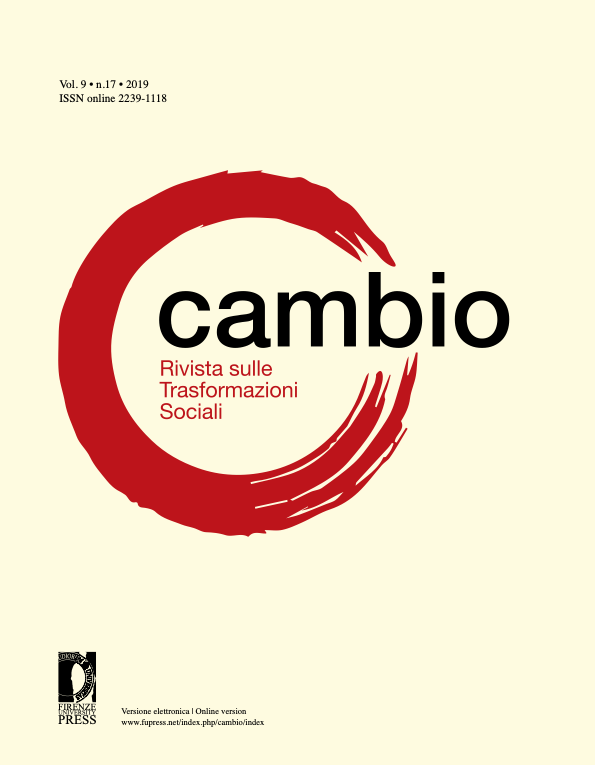Double loneliness and double belonging. : Fighting against loneliness: the international movement to support Hirak Rif, the Italian case study
Published 2019-11-04
Keywords
- Migration,
- Morocco,
- Double solitude,
- Movements,
- Hirak
How to Cite
Abstract
In experiencing migration, some actors may take political action to contrast their own loneliness and to claim the belonging both to the host country and the country of origin. For the foreigners living in Italy, approaching to the social and political struggles of the community of origin can be a way to claim the belonging to a group, or to several groups. The objective of this contribution is to analyse the transnational networks of the political mobilisation at the time of globalization, the migration flows and the increasing use of online social networks.
The Moroccan movement Hirak Rif was born in the region of Rif during October 2016 to advance social, political and economic demands. This work’s aim is to examine the mobilisation of the Moroccans living in Italy, in particular of those from the Riffian region. They use Facebook as a tool of struggle, to fight the loneliness that they consider the end of the Hirak’s strength.
In this contribution, the role of the social networks as means of separation among individuals is questioned, supporting instead their unifying function. The social networks as political tools are essential to the existence of the Moroccan diaspora’s political action. This comes clear both from the observation of the movement’s action and from the interviews with the activists. Therefore, the assumption of the movement’s loneliness and the methods used in order to oppose it, seem to be strategies to fight the loneliness of the activists themselves. This can be seen as a migrant’s double loneliness, echoing the migrant’s double absence of Sayad’s analysis . The activists’ actions put in place to support the Riffian movement would lead, on the one hand, to the strengthening of the links between the individuals and the group of origin; on the other hand, they would lead to the creation or to the consolidation of the group in the immigration country. The political action, made possible and easier thanks to the social networks, is used by the activists to create and legitimate both groups. In this way the double political belonging of the activists is built and strengthened.



